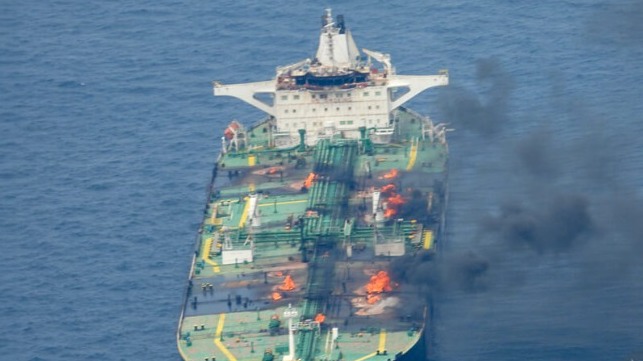UNCTAD: Maritime Chokepoints Are Trade's Biggest Vulnerability

In its annual review of world maritime commerce for 2024, UN Trade and Development (UNCTAD) honed in on the risk of disruption at key maritime chokepoints. Protracted challenges at the Panama Canal and the Strait of Bab el-Mandeb have raised policymakers' awareness of the risk of a shutdown on the world's busiest trade lanes, and the potential knock-on effects for shippers and consumers.
The Red Sea is the most important example, and has gotten gradually worse since Yemen's Houthi rebels began attacking shipping in the fall of 2023, despite interventions by Western powers. By the end of the year, traffic through the Suez Canal was down by half, and by mid-23024 it was down by 70 percent. As more and more ships took the longer Cape of Good Hope route, global ton-mile demand went up by three percent and container ship demand by 12 percent.
The shutdown of the Red Sea has been a financial lifeline for ocean carriers, as it absorbed excess vessel capacity and returned freight rates and profit margins to higher levels. For shippers, it has meant delays and higher costs, some of which are passed along to consumers. Just the cost of extra EU ETS emissions charges comes to $400,000 per voyage for a Megamax-24 on the Far East-Europe route, according to UNCTAD.
Disruption notwithstanding, UNCTAD predicts uninterrupted growth in maritime trade. By tonnage, seaborne commerce increased by 2.4 percent in 2023, and is on track to grow by another two percent this year. On average, UNTAD forecasts 2.4 percent annual growth per year for the next five years, despite an "exceptionally daunting operating landscape" because of geopolitical conflict.
This will drive continued increases in freight rates, boosting inflation. Container rate increases alone will push consumer prices up by an average of 0.6 percent worldwide by 2025, according to UNCTAD. For small island states and least developed nations, which have less ocean freight connectivity, that number is closer to one percent.
In response to the risk of disruption and inflation, UNCTAD recommended:
- International cooperation to minimize the impact of geopolitical risk on trade lanes
- Earlier prediction and faster rerouting when disruptions occur
- Regional trade cooperation to reduce dependence on costly long-distance routes
- Streamlining supply chains to reduce ton-mile requirements
- Digitizing port operations to improve efficiency across the board
No comments:
Post a Comment